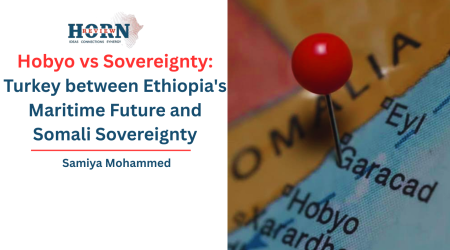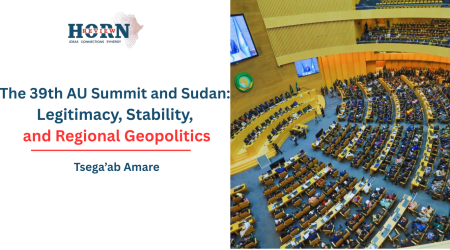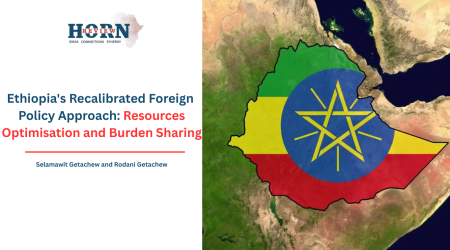
30
Jul
Ethiopia’s Red Sea Ambitions: Sovereignty, Regional Rivalries, and Geostrategic Implications
Ethiopia’s pursuit of maritime access remains a defining feature of its geopolitical strategy in the Horn of Africa and the broader Red Sea region. Landlocked since Eritrea’s independence in 1993, Ethiopia faces significant economic and strategic constraints resulting from its lack of direct access to international shipping routes. The country’s ongoing efforts to secure port access through regional partnerships reflect a sovereign determination to overcome these limitations and enhance its trade connectivity, economic diversification, and regional integration. However, these initiatives have encountered resistance and suspicion from neighboring states, particularly Eritrea, which questions the legitimacy and motivations behind Ethiopia’s actions.
Eritrean President Isaias Afwerki has characterized Ethiopia’s maritime ambitions as a façade for the United Arab Emirates’ (UAE) strategic designs in the Red Sea, accusing Ethiopia of serving as a proxy to facilitate UAE control over key maritime chokepoints stretching from Jeddah to Berbera, including Eritrean coastal areas. He further implicated Ethiopia’s ruling Prosperity Party in advancing external interests under the guise of national policy. While this narrative reflects deep-seated regional mistrust and contestation over control of the Red Sea, it risks oversimplifying the complex strategic considerations that underpin Ethiopia’s foreign policy objectives.
From a geopolitical perspective, Ethiopia’s maritime initiatives are a legitimate exercise of sovereign rights aimed at redressing the economic disadvantages imposed by its landlocked status. The country’s pursuit of negotiated access to ports along the Red Sea littoral is consistent with international norms governing state sovereignty and freedom of navigation. This civilian-oriented approach stands in contrast to the militarization and foreign military presences that characterize other parts of the region, including Eritrea’s lease of the Assab port to the UAE and its use as a forward operating base in the Yemeni conflict.
The Eritrean-UAE relationship exemplifies the intricate geostrategic rivalries shaping the Red Sea. Eritrea’s facilitation of UAE military operations against Iran-aligned Houthi forces in Yemen underscored Assab’s strategic value. Concurrently, allegations of Iranian logistical support for the Houthis via Eritrean maritime routes have heightened security concerns among regional and global actors. Within this highly militarized environment, Ethiopia’s non-military strategy to secure maritime access highlights a pragmatic and economic focus, distinguishing its ambitions from proxy warfare dynamics.
Historically, Ethiopia’s ties to the Red Sea are rooted in centuries of economic and cultural exchange dating back to the Aksumite Kingdom, which flourished through maritime trade linking the Horn of Africa with the Arabian Peninsula and beyond. Colonial and post-colonial territorial realignments severed Ethiopia’s sovereign access to the sea, increasing its dependence on neighboring ports and constraining its economic sovereignty. Ethiopia’s present efforts to restore maritime access should therefore be understood as an attempt to reclaim historical rights and address enduring geopolitical isolation.
Regional reactions to Ethiopia’s maritime ambitions are shaped by broader rivalries and strategic calculations. Egypt, wary of Ethiopia’s growing regional influence and ongoing disputes over Nile waters, perceives Ethiopian access to the Red Sea as a strategic challenge. Sudan, amid internal instability, echoes similar concerns. Eritrea’s opposition must be contextualized within its shifting alliances and security priorities, including its engagement with Gulf states and resistance to Ethiopian ascendancy in the region.
Given the Red Sea’s critical role as a global maritime corridor, cooperative governance mechanisms are essential to transcend bilateral disputes and competing power ambitions. Ethiopia’s efforts to secure maritime access through peaceful and diplomatic means highlight the necessity for inclusive frameworks that promote regional economic integration, connectivity, and maritime security. Ensuring equitable access to these vital shipping lanes aligns with the broader interests of stability and free trade.
Ethiopia’s maritime strategy constitutes a legitimate assertion of sovereign economic rights rooted in historical precedent and contemporary necessity. While regional skepticism and accusations of external manipulation reflect persistent geopolitical anxieties, they risk obscuring the complexities of evolving security and economic architectures in the Horn of Africa. Lasting solutions will require recognition of Ethiopia’s sovereign claims alongside constructive dialogue among littoral states to foster peaceful, inclusive, and mutually beneficial management of the Red Sea’s strategic corridors.
By Bemnet Fikre, Researcher, Horn Review










